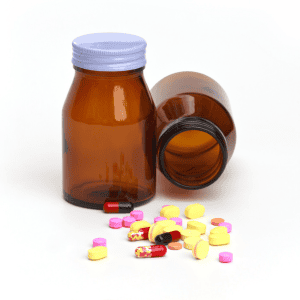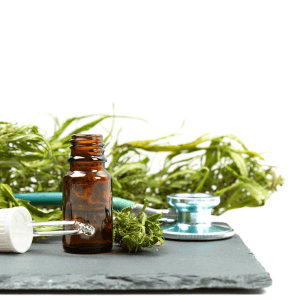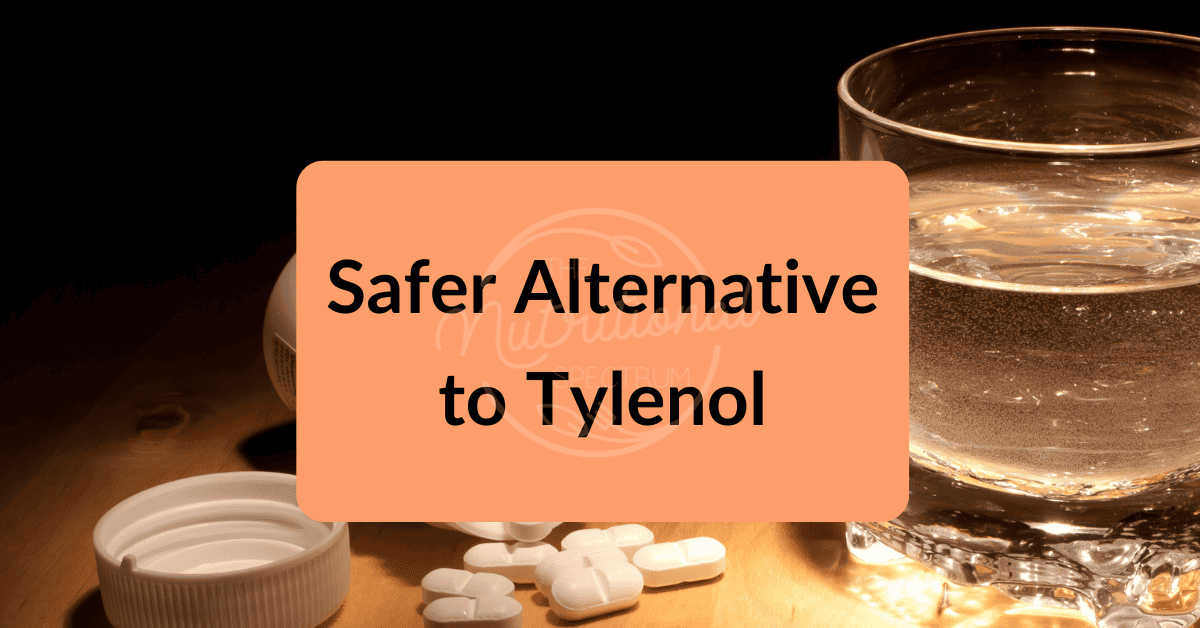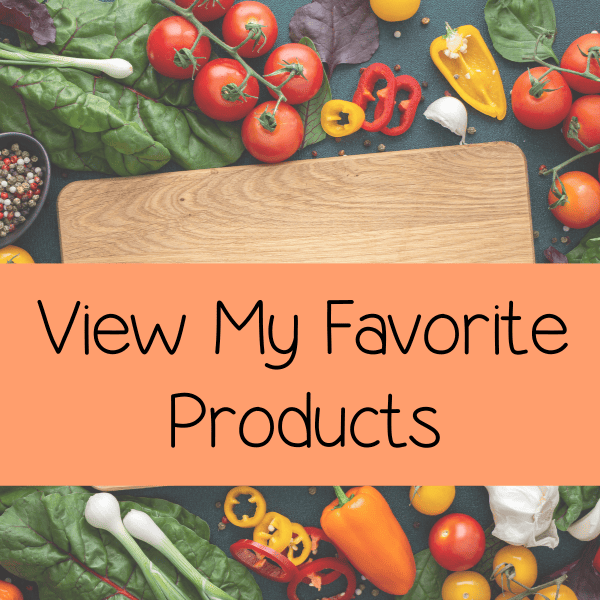Last updated on March 12th, 2025 at 07:57 am
In the hectic world of parenting, looking for effective pain relief for our children is a universal concern.
For many, the go-to in the medicine cabinet is Tylenol (acetaminophen), hailed for its efficacy and wide availability.
However, recent findings and longstanding health warnings have unveiled the risks associated with the overuse of this seemingly benign OTC medication.
With the stakes high and our children’s health on the line, exploring safer alternatives to Tylenol has never been more critical.
The Risks of Overusing Tylenol
 While Tylenol is a widely used remedy, its overconsumption poses significant risks that should not be overlooked.
While Tylenol is a widely used remedy, its overconsumption poses significant risks that should not be overlooked.
Excessive usage can result in severe liver damage, decreased glutathione levels, and heightened vulnerability to oxidative stress—a trio of concerns that underscore the gravity of overreliance on Tylenol.
These dangers have garnered attention from prominent health organizations worldwide, accentuating the need for heightened awareness and caution.
This risk is particularly alarming in children, whose developing bodies may be more susceptible to the adverse effects of acetaminophen.
Recent lawsuits have brought these dangers to the forefront, prompting a reevaluation of pain relief strategies and emphasizing the imperative of informed decision-making when it comes to the health and well-being of our children.
Despite mounting concerns, Tylenol remains readily available for purchase. However, these warnings serve as a poignant reminder for families worldwide: even household staples require thoughtful consideration and prudent usage
Those who frequently rely on Tylenol or reach for it without hesitation may benefit from reassessing their approach to pain relief, prioritizing the well-being of their loved ones above convenience.
Disclosure: There are affiliate links in this post. If you click the link and buy something, I might get a commission at no additional cost to you! This is what keeps this blog running so consider using these links if you decide to try any of my recommendations.
Safer Alternatives to Tylenol
The good news is that the market is brimming with safer choices, some even more effective in certain situations. 
One such alternative is ibuprofen, commercially available as Advil or Motrin.
While it has its own set of guidelines and cautions, ibuprofen carries a lower risk of liver damage and could be a suitable substitute.
But it’s not just about switching one medication for another.
The focus is on developing a mindset that prioritizes informed and thoughtful decisions regarding pain relief, with an eye on our children’s long-term health.
It involves comprehending the reasons behind our choices, ensuring that what we administer not only addresses the immediate discomfort but also aligns with their future well-being.
Natural Remedies
For parents who gravitate towards natural solutions, a treasure trove of remedies awaits, trusted for generations.
Natural options offer a gentler approach, often with minimal, if any, side effects.
Among these alternatives, chamomile and lavender stand out, revered for their calming and analgesic properties. They are frequently utilized to ease teething discomfort and minor aches.
But the possibilities don’t end there. Other natural remedies such as arnica and belladonna also hold promise in providing relief from various ailments.
This realm of natural remedies presents an exciting avenue for exploration, particularly with modern science increasingly validating the efficacy of these time-honored treatments.
Choosing natural doesn’t signify a compromise in potency; rather, it signifies a harmonious synergy of compounds working together, contrasting with the singular focus of many pharmaceuticals.
Comprehensive List of Safer Pain Relief Alternatives
- Arnica: Arnica is like a superhero flower! It helps fight swelling and pain, just like putting on a magical cream or gel when you have a bruise or muscle ache.

- Belladonna: Belladonna is a plant with a cool name, but it’s also known as “deadly nightshade.” It has special stuff called alkaloids that can help make pain go away, especially if you have a headache or tummy ache.
- Chamomile: Chamomile is like a cozy hug in a teacup! It’s a gentle herb that can soothe aches and pains, like when your tummy feels funny or your teeth hurt from growing.
- Lavender: Lavender is like a calming friend! Its special oil can help you feel better when you have a headache or your muscles are tight. You can smell it or put it on your skin to feel relaxed and calm.
- Turmeric: Turmeric is like a spice superhero! It has a magic compound called curcumin that fights swelling and pain. You can sprinkle it on your food or take it as a medicine to help your body feel better when your joints hurt.
- Ginger: Ginger is like a spicy superhero! It’s a natural fighter against pain and swelling, especially when your tummy hurts or your joints ache. You can drink ginger tea or add it to your food to feel better.
- Rustic Essential Oil Blend -Earthley’s Rustic Essential Oil Blend combines bergamot, frankincense, coriander, and patchouli for a refreshing, calming scent. It aims to reduce anxiety and fatigue while offering anti-inflammatory and antimicrobial properties.
- Anti-Inflammatory Herbal Extract: This extract targets inflammation in the body using natural ingredients like cinnamon, ginger, orange peel, motherwort, and echinacea. It aids in pain relief, supports gut health, and boosts the immune system.
- Turmeric + Black Pepper Capsules: These capsules support a healthy inflammatory response and may alleviate arthritis, joint, and muscle pain. Turmeric’s anti-inflammatory and antioxidant properties are enhanced by black pepper, promoting absorption and gut health.
Consulting with Healthcare Professionals
A crucial step in navigating the landscape of pain management for children is engaging in open dialogue with your child’s healthcare providers.
The goal is to minimize dependence on over-the-counter painkillers, even those perceived as innocuous, by exploring comprehensive and holistic solutions.
I encourage you to express any concerns or questions regarding the safety of medications like Tylenol with your healthcare provider.
Through informed discussions and shared decision-making, you can work together with your healthcare professionals to prioritize the well-being and long-term health of your child.
Final Thoughts
The safety of our little ones is non-negotiable, and as parents, making informed choices for their wellbeing is an ongoing imperative.
For those of you who have incorporated Tylenol into your strategy, it’s time to pause and reassess.
There is a multitude of ways to relieve pain in our children that are safer, smarter, and aligned with a happier, healthier future.
The journey to a Tylenol-free medicine cabinet may seem daunting.
However, with the right resources and a mindful approach to health, it’s not only possible but empowering for you to be able to make the best choices for your child’s health and happiness.
Additional Resource:
- You May Check Out My Storefront for More Helpful Resources
- Shilajit Benefits
- Why Parents Should Be Wary of Overusing Antibiotics
- Items for Cold and Flu Season Winter





0 Comments